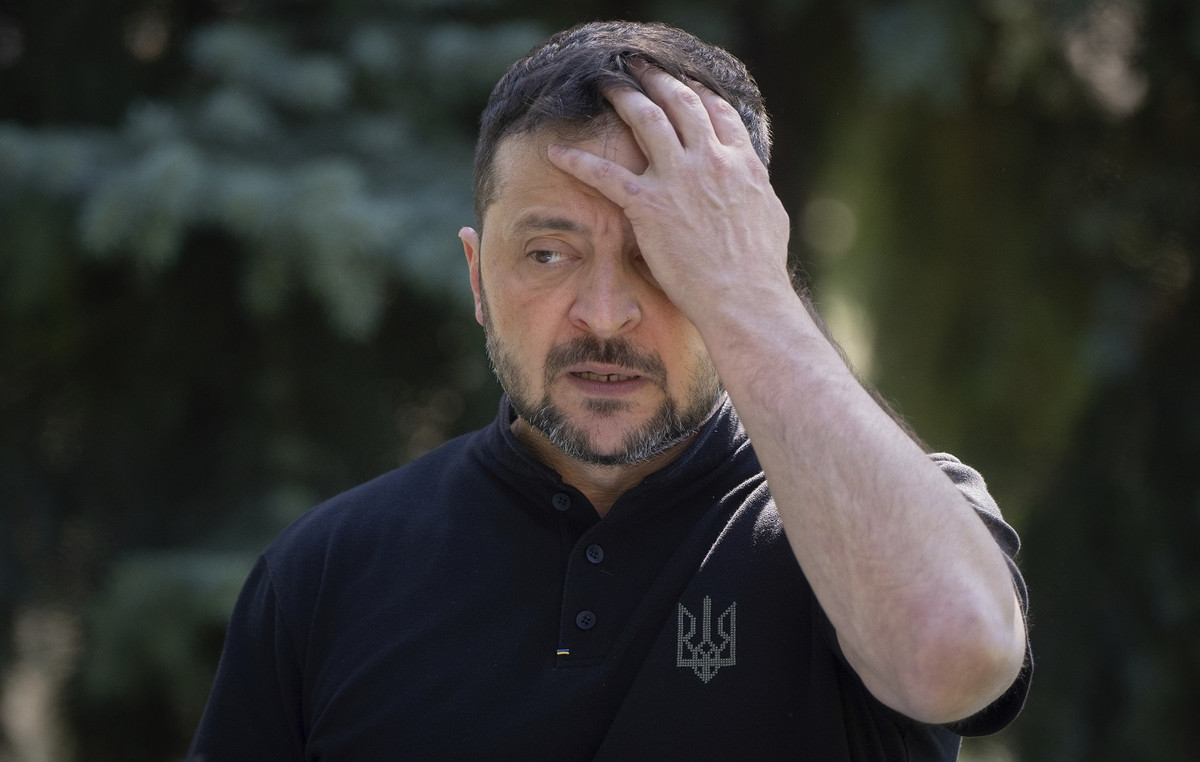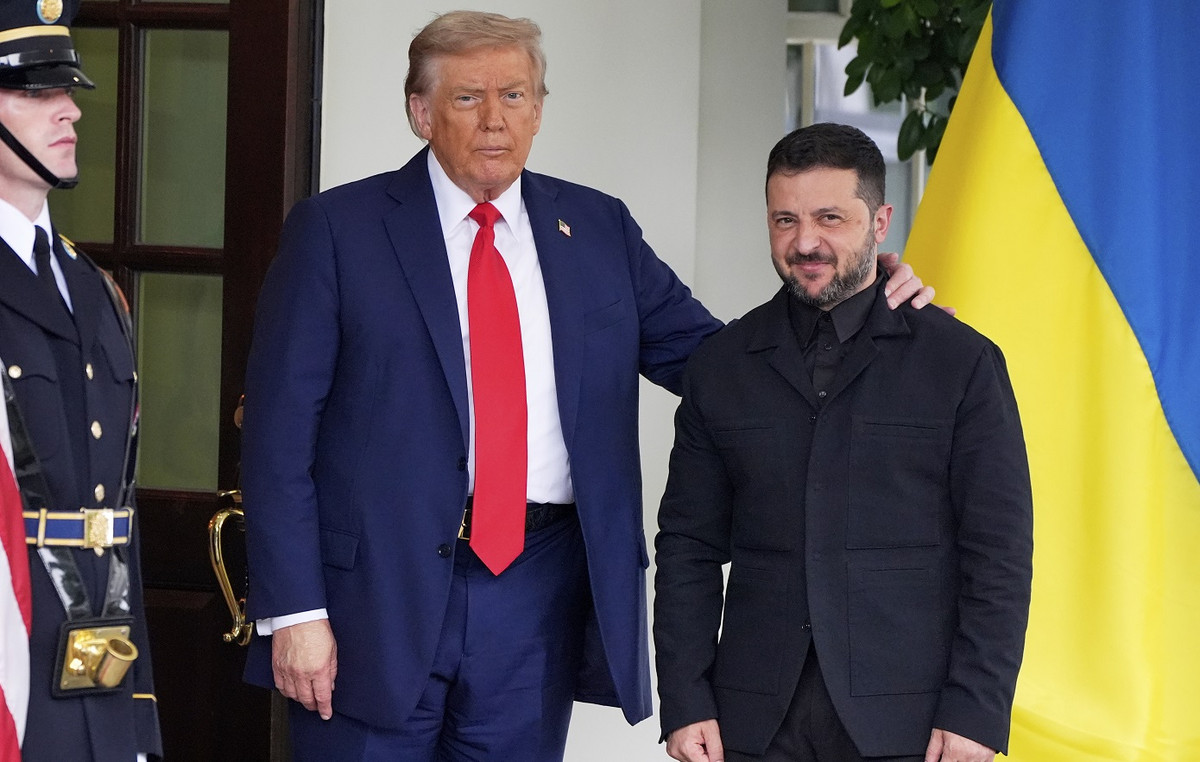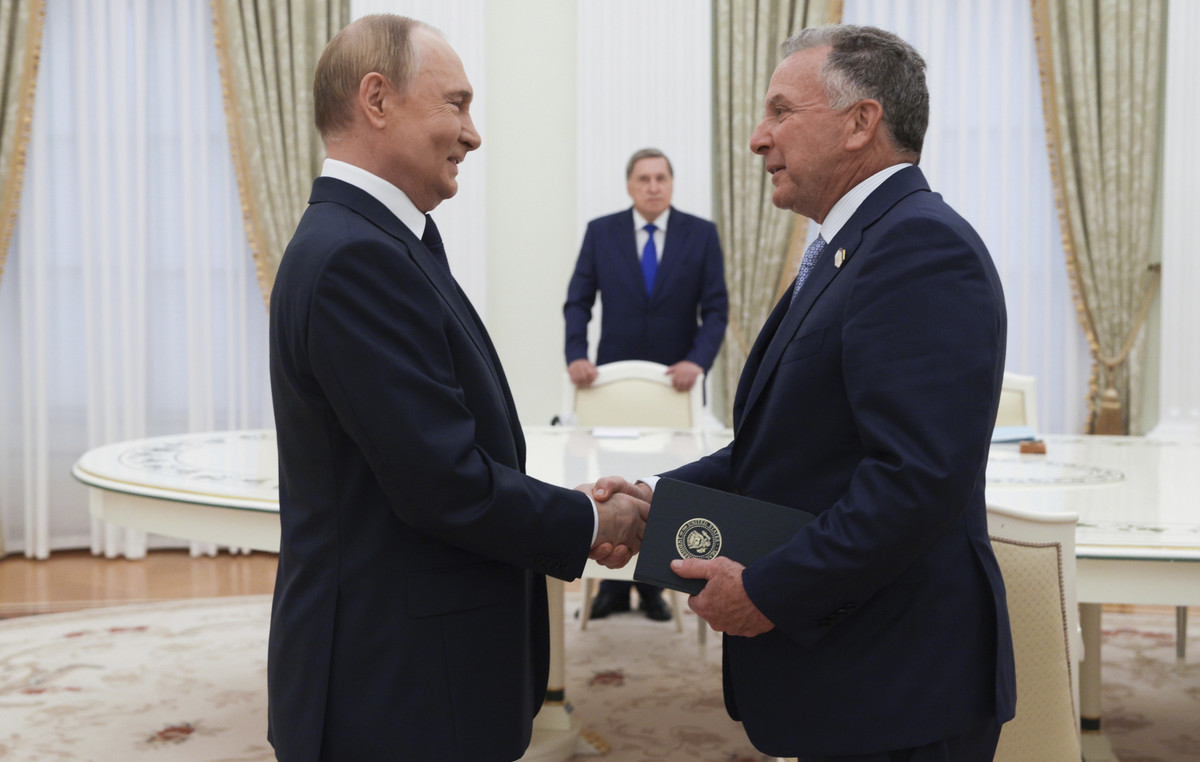Opponents of France’s far right united to build a front to block the path to government by Marine Le Pen’s National Rally (RN) on Monday (1st), after the party made historic gains by winning the first round of a parliamentary election.
The RN and its allies won Sunday’s round with 33% of the vote, followed by a left-wing bloc with 28% and well ahead of President Emmanuel Macron’s broad alliance of centrists, which got just 22%, official results showed.
While financial markets were buoyed by relief that the RN’s tally was not higher, the result was still a major setback for Macron, who called the snap election after his ticket was defeated by the RN in last month’s European Parliament elections.
“I’m satisfied, because we need change,” said Jean-Claude Gaillet, 64, an RN supporter, in Le Pen’s northern stronghold of Henin-Beaumont. “Things haven’t moved, and they need to move.”
But others feared that the rise of the RN and its nationalist platform would cause growing tensions in French society.
“I don’t think people realize what’s happening, they’re just thinking about the cost of living and short-term things like that,” Yamina Addou said outside a supermarket in the nearby town of Oignies, south of Lille. “I think it’s very sad.”
Whether the anti-immigrant, eurosceptic RN can form a government will now depend on how successful other parties are in thwarting Le Pen by rallying behind rival candidates who are better placed in hundreds of constituencies across France.
The RN would need at least 289 seats in parliament to secure a majority. Pollsters have calculated that the first round put them on track for between 250 and 300 seats – but that is before tactical withdrawals that could reshape voter intentions next weekend.
“Attack!”
Leaders of both the left-wing New Popular Front and Macron’s centrist alliance indicated on Sunday night (30) that they would withdraw their own candidates in districts where another candidate was better positioned to defeat the RN in the second round next Sunday (7).
Initially, it was unclear whether such a pact would always apply if the left-wing candidate were from the France Insoumise (LFI) party of Jean-Luc Mélenchon, a divisive figure with radical proposals on taxation and public spending and class-war rhetoric.
But Macron told ministers on Monday that denying the RN a majority was the top priority, according to a source at a closed meeting at the Elysee Palace, who said this was intended to confirm that the pact could apply to LFI candidates on a case-by-case basis.
The source said Macron ended his speech at the meeting with the command: “Attack!”
Polling firm Ipsos calculated that the first round left three-way races in about 300 of the 577 seats in France’s National Assembly. Le Monde newspaper said third-place candidates had already withdrawn in about 160 of those districts.
While the so-called “republican front” against the far right has largely worked in the past, analysts question whether French voters are still willing to cast their ballots in the second round following the guidance of political leaders.
Long a pariah for many in France, the RN is now closer to power than ever. Le Pen has sought to clean up the image of a party known for racism and anti-Semitism, a tactic that has worked as voters have grown increasingly angry at Macron, who many see as out of touch with their day-to-day concerns.
The RN’s gains were welcomed by nationalists and far-right groups across Europe, including Italy’s Prime Minister Giorgia Meloni and Spain’s Vox party. Pedro Sánchez, Spain’s socialist prime minister, said left-wing parties could still block an outright RN victory.
German Foreign Minister Annalena Baerbock expressed concern about the emergence “of a party that sees Europe as the problem and not the solution” and drew parallels with growing support for the Alternative for Germany (AfD) in her country.
An RN-led government would raise big questions about the direction of the European Union. Rights groups have expressed concern about how its “France First” policies would apply to ethnic minorities, while economists question whether its spending plans are fully funded.
Parliament without majority?
Banking shares led French stocks higher and the premium investors demand to hold the country’s bonds fell, while the euro gained on Monday as markets took solace in the RN’s weak performance.
The main alternative scenario to an RN-led government would be a parliament without a majority, potentially making France ungovernable for the rest of Macron’s presidency, which runs until 2027.
In constituencies without a clear winner, the top two candidates, plus any candidate with more than 12.5% of registered voters in that constituency, have until Tuesday night to confirm whether they will advance to a second round.
In moves after the vote, Prime Minister Gabriel Attal suspended plans for unemployment reforms that would have reduced jobless benefits — a move that could make it easier for left-wing voters to support Macron’s allies.
Meanwhile, RN lawmakers have called on center-right politicians from the Republicans (LR) party, who received less than 7% of the vote in the first round, to withdraw from constituencies where such a move would favor the RN.
The LR, which split ahead of the vote with a small number of its MPs joining the RN, has yet to clarify its position.
Jordan Bardella, the RN’s choice for prime minister should he win a majority, focused his attacks on left-wing parties, describing the far left as “an existential threat” to France.
Source: CNN Brasil
Bruce Belcher is a seasoned author with over 5 years of experience in world news. He writes for online news websites and provides in-depth analysis on the world stock market. Bruce is known for his insightful perspectives and commitment to keeping the public informed.







